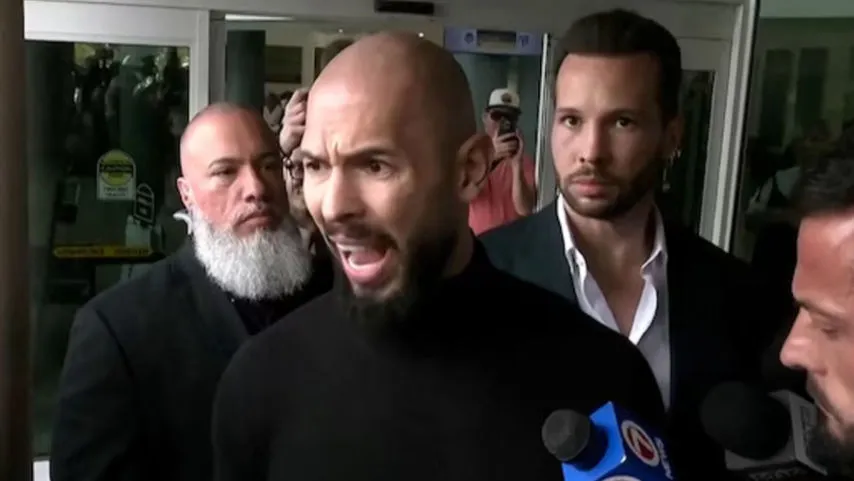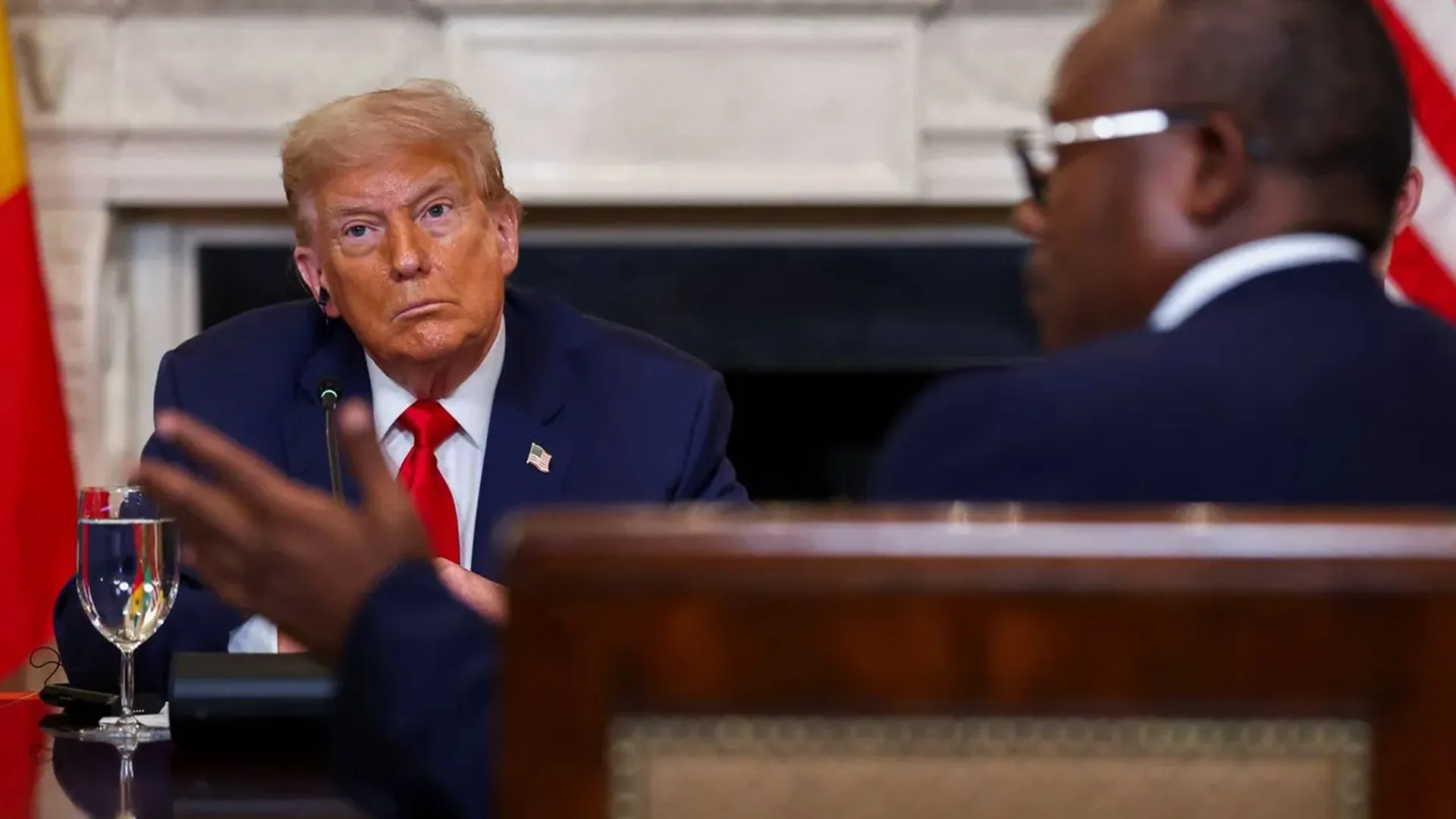Andrew Tate, 38, and his brother Tristan, 36, hold dual US-UK citizenship. They gained fame through social media and online businesses. However, their controversial views, often labeled misogynistic and offensive, have drawn widespread criticism.
Their father was a US Air Force officer, and their mother is British. After their parents divorced, they grew up in Luton, England, where they started their careers. Andrew, a former kickboxer, first gained public attention in 2016 on the UK reality show “Big Brother.” However, he was later removed when a leaked video showed him physically assaulting a woman.
Over time, their content has come under scrutiny. Reports link Andrew Tate’s influence to the radicalization of young men. In 2024, a UK police report described his impact on violence against women and girls as “quite terrifying.”
Why Did the Tate Brothers Travel to the US?
Romanian authorities arrested Andrew and Tristan in December 2022 on charges of human trafficking, sexual exploitation, and rape. They deny all allegations. Despite being under judicial supervision, they have now received permission to leave Romania after more than two years of restrictions.
The brothers boarded a private jet from Bucharest and landed in Fort Lauderdale, Florida. Romanian prosecutors confirmed that the travel ban was lifted, allowing them to reclaim their US passports. However, legal proceedings are ongoing. They may need to return to Romania by the end of March to face trial.
What Are the Allegations Against Them?
Authorities formally indicted the Tate brothers and two Romanian women in 2023. Prosecutors accuse them of running a criminal group that sexually exploited women, including minors.
Andrew faces an additional rape charge, while Tristan and their associates face related trafficking charges. A court initially rejected the indictment due to procedural errors, but another court later allowed the trial to proceed. No trial date has been set.
Meanwhile, UK authorities have issued arrest warrants against them for alleged sexual offenses between 2012 and 2015. A British court ruled that they could be extradited after the Romanian trial ends.
Besides criminal charges, they also face civil lawsuits. In the UK, four women have sued Andrew Tate for alleged sexual and physical assault. In the US, another civil case is underway, but details remain unclear.
Did the US Influence Their Travel Approval?
The decision to lift their travel ban has raised speculation about US government involvement. Reports suggest that former Trump administration official Richard Grenell discussed the matter with Romanian Foreign Minister Emil Hurezeanu at the Munich Security Conference.
The Financial Times reported that US officials allegedly urged Romania to return the brothers’ passports and ease restrictions. However, Hurezeanu denied any external influence. He stated that his conversation with Grenell was informal. Still, Romanian legal experts argue that such an intervention, if true, would be unprecedented.
Cristi Danilet, a former judge, commented, “If it is true, it means that there is no more rule of law and sovereign countries.”
How Did the Alleged Victims React?
Victims and legal representatives strongly condemned the decision. Four British women who accused Andrew Tate of rape and assault expressed “disbelief and retraumatisation.” They fear the brothers could intimidate witnesses or evade justice.
Matthew Jury, a lawyer for these women, criticized the Trump administration’s alleged involvement. He said, “To see the most powerful man in the world support their alleged abuser is incredibly traumatising. It’s gaslighting of a sort.”
Despite the controversy, US and UK authorities have remained mostly silent. The British Prime Minister’s office declined to comment on whether the UK government will seek their extradition.
What Happens Next?
Although the Tate brothers left Romania, their legal troubles continue. They remain under judicial supervision and must return for future hearings. If they fail to comply, stricter measures could follow.
Meanwhile, Romanian courts have unfrozen many of their assets, including luxury cars, properties, and land. However, some assets remain under precautionary seizure. Their financial dealings also face scrutiny, with tax evasion allegations adding to their legal challenges.






















